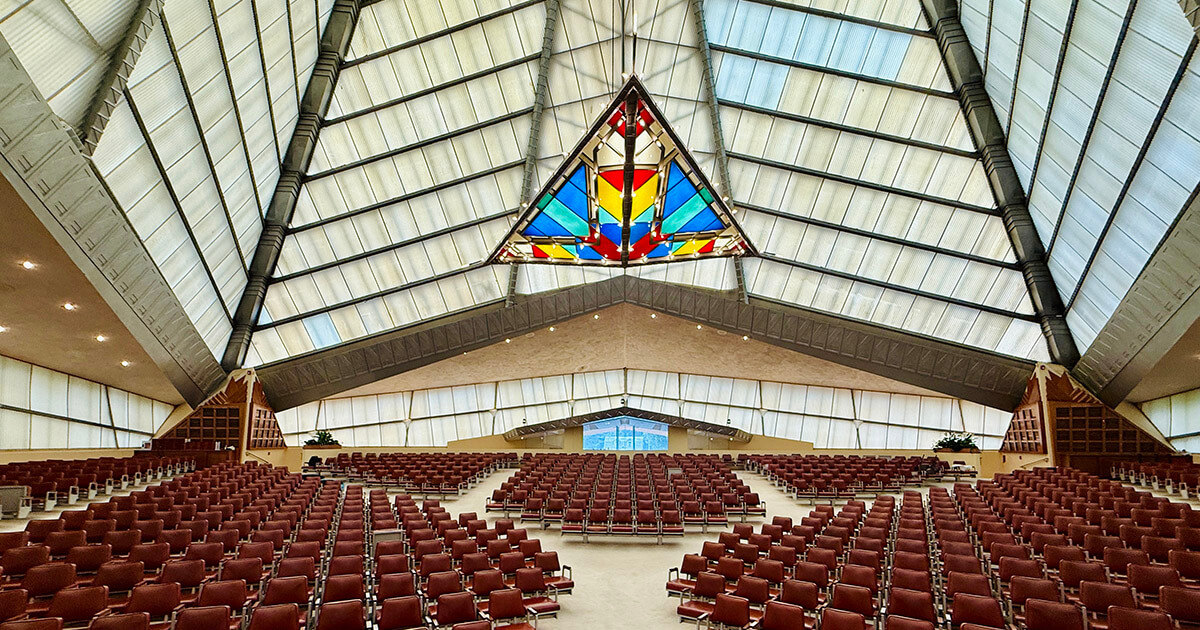Designer T-Shirts Cause ‘Divine’ Conflict With Kabbalah Centre
In the names of God, one fashion designer is producing T-shirts and skirting conflict with the famed Los Angeles-based Kabbalah Centre.
Ayelet Aviv, an Israeli artist from Mitzpe Ramon in Israel, recently went solo with her line of Kabbalah-inspired T-shirts after an alleged collaborative agreement with The Kabbalah Centre fell through because she refused to offer her services for charity.
“I really have to thank The Kabbalah Centre for showing me the light,” Aviv said, with more than a touch of irony.
Aviv joined center The Kabbalah Centre in the aftermath of September 11 attacks, just as the center was reaching its zenith of celebrity cult status and as it further earned a reputation for a love of product placement. Under the direction of Rachel Almog, she ran huge Purim galas and Rosh Chodesh celebrations for the Centre, and even designed costly handwritten ketubot, or traditional Jewish marriage contracts, for two weddings held there. Then she was approached by Sharagano (whose name means “Ray of Light” in Aramaic), a fashion label that has close links to the center, to help develop clothing based on the 72 names of God.
Aviv came up with the idea to adorn T-shirts with the 72 names of God, a kabbalistic method of meditation through visualization of the word. The 72 are not conventional names, but rather codes that followers say are embedded in the biblical story of the parting of the Red Sea. On the shirts, Aviv merges old Hebrew script with innovative design concepts on T-shirts, and the result has been dramatic sartorial pairings, including an “Abolish the wicked” T-shirt featuring the letters of one of God’s names dripping from a barcode, and another with the word “Immortality” draped by a skull and scimitar.
Soon after, a representative of The Kabbalah Centre told Aviv that this work would be considered her “charity” on top of the 10% “tithe” required of center members.
“How should I have to donate my work as charity when these people live like millionaires, and I do not even have a job and could not support myself?” said Aviv of the celebrity-friendly center that has assets and yearly revenue totaling around $20 million. After deciding to do the T-shirts on her own, she claims a Sharagano director warned her that “there will be consequences.”
Over the next few months, Aviv produced the first shirt samples, financing the project on her own. (She had a friend personally deliver handmade samples to Kabbalah followers Ashton Kutcher and Demi Moore; though the stars allegedly said the shirts were beautiful, they never were seen wearing them.) In May, Aviv received a letter from Nancy Katz, a public relations representative for The Kabbalah Centre, charging copyright infringement. Aviv contacted the center’s counsel and offered a profit-sharing compromise, but to no avail.
Rabbi Yehuda Berg, director of The Kabbalah Centre, declined to comment for the Forward on this story.
“Nobody owns the names,” Aviv said. Indeed, it might not surprise anyone to learn that the names of God are outside copyright ownership. The Kabbalah Centre ran into this difficulty before when they it unsuccessfully to copyright the “red string” or bendel, which kabbalists wear to protect themselves against evil.
With more than 25 shirts in her line, Aviv is now selling her designs at high-end stores and trade shows worldwide — especially in Japan, where there are several fan Web sites devoted to the shirts. In the end, Aviv said, “it’s about reclaiming my heritage, and it’s more mine than Madonna’s, that’s for sure.”
Regular shirts sell at a price range of $49 to $68, but Aviv is also offering custom-made versions adorned with Swarovski crystals, for upward of $120 each. (All designs can be seen at 7eventy-2wo
Adam J. Sacks is a writer and documentary filmmaker living in Harlem. He is currently producing a series of historical walking tours on the creative destruction of Manhattan, including “Our Crowd’s Fifth Avenue,” and “When Harlem Was Jewish.”

















